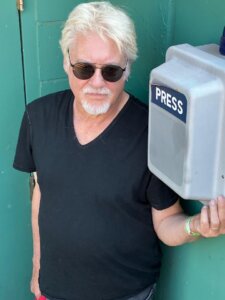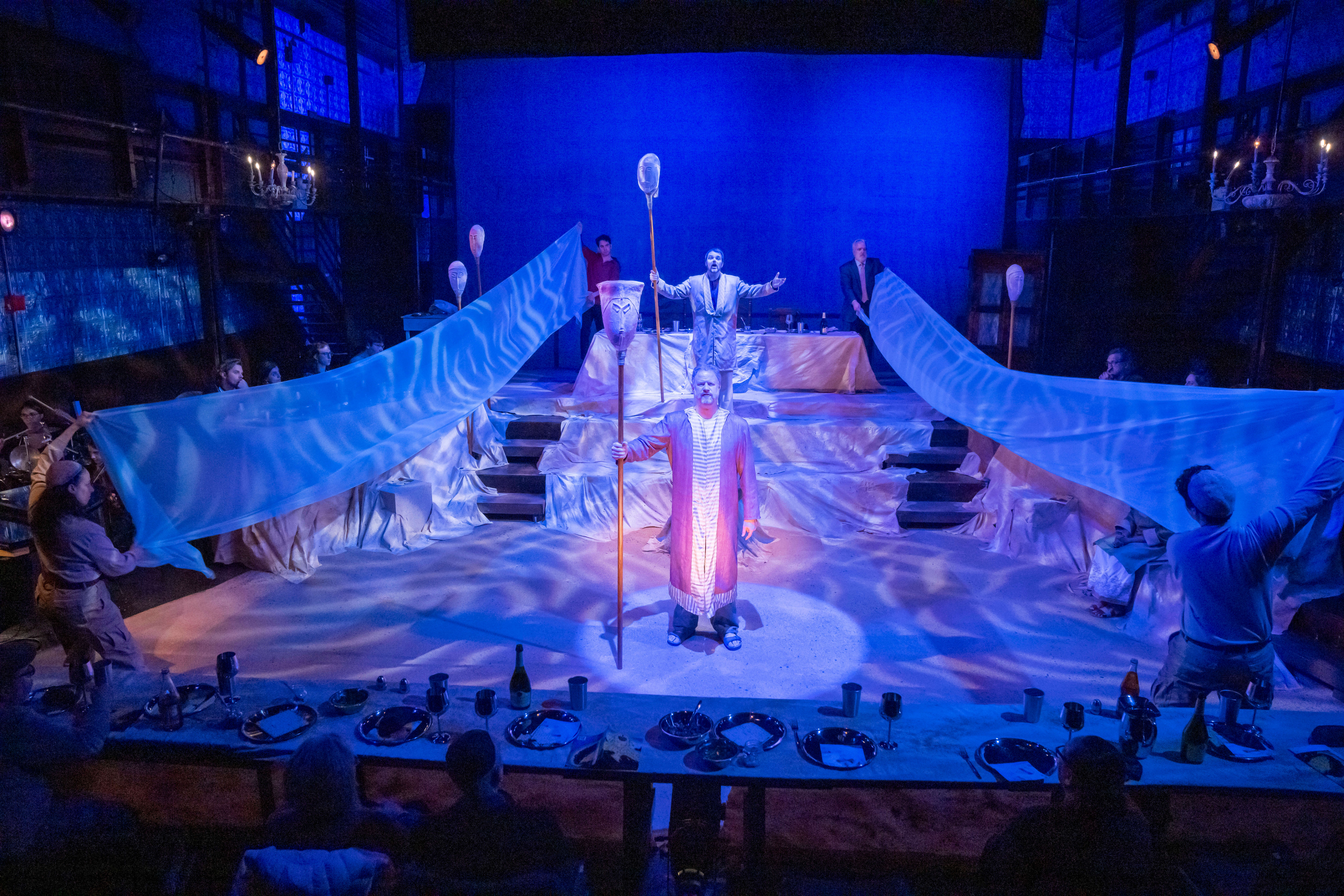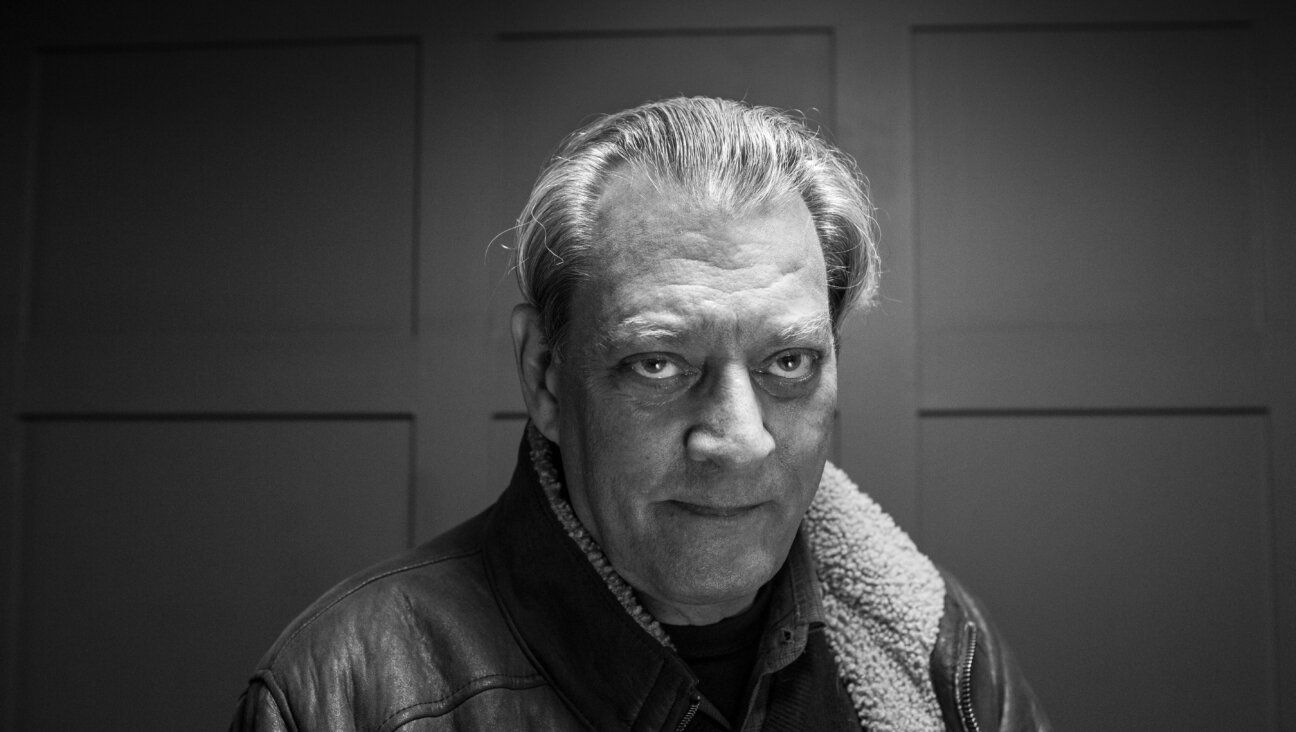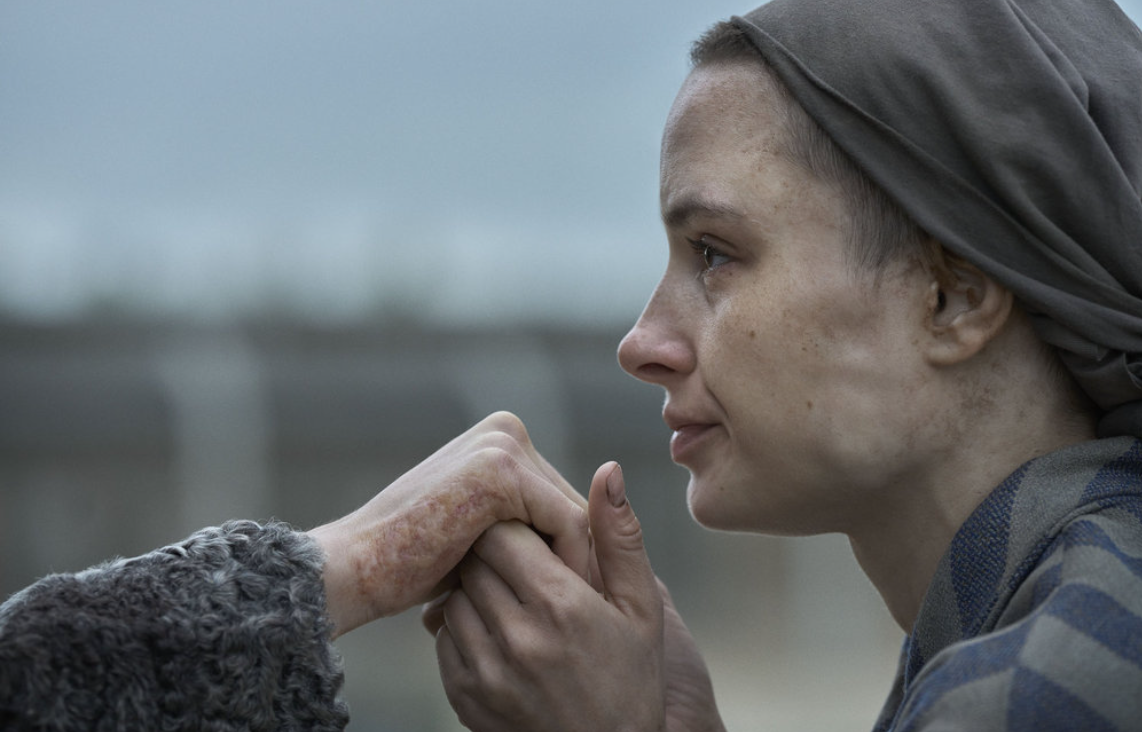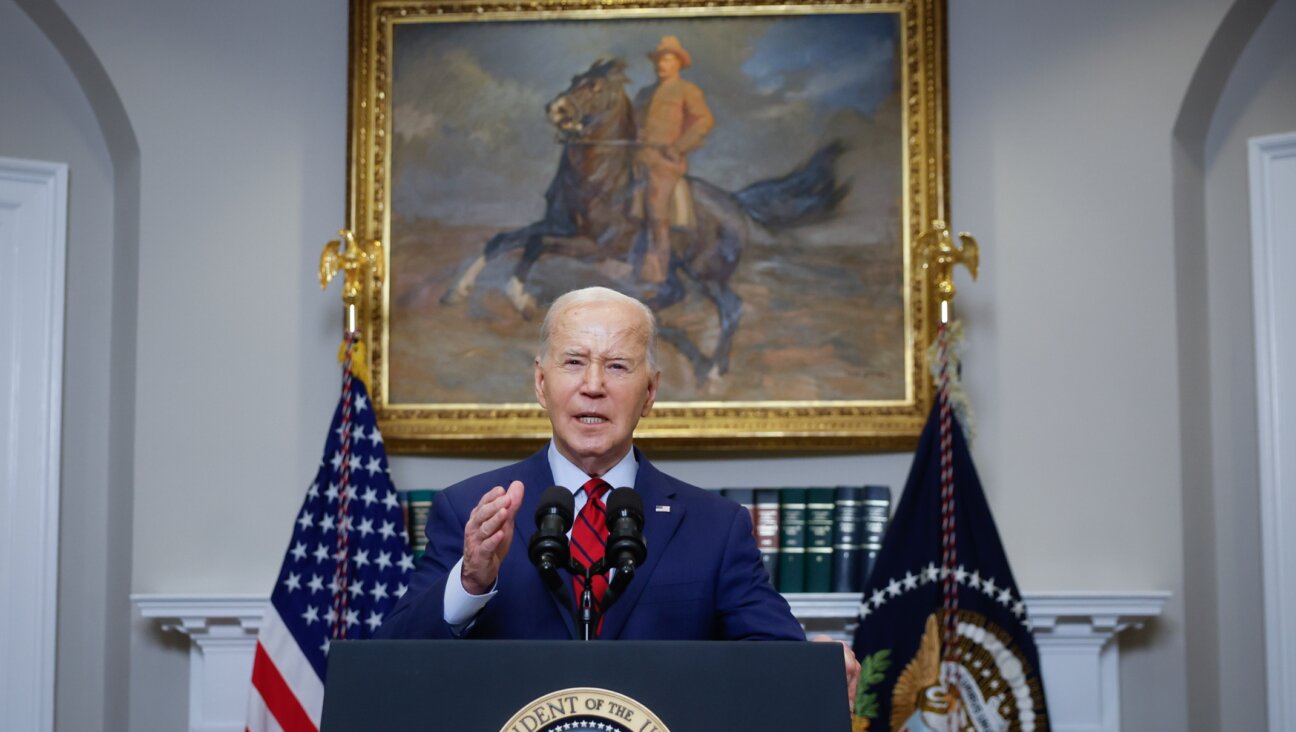A pioneering Jewish rock band got its start in 1965; they’re still slowly and steadily turtling along
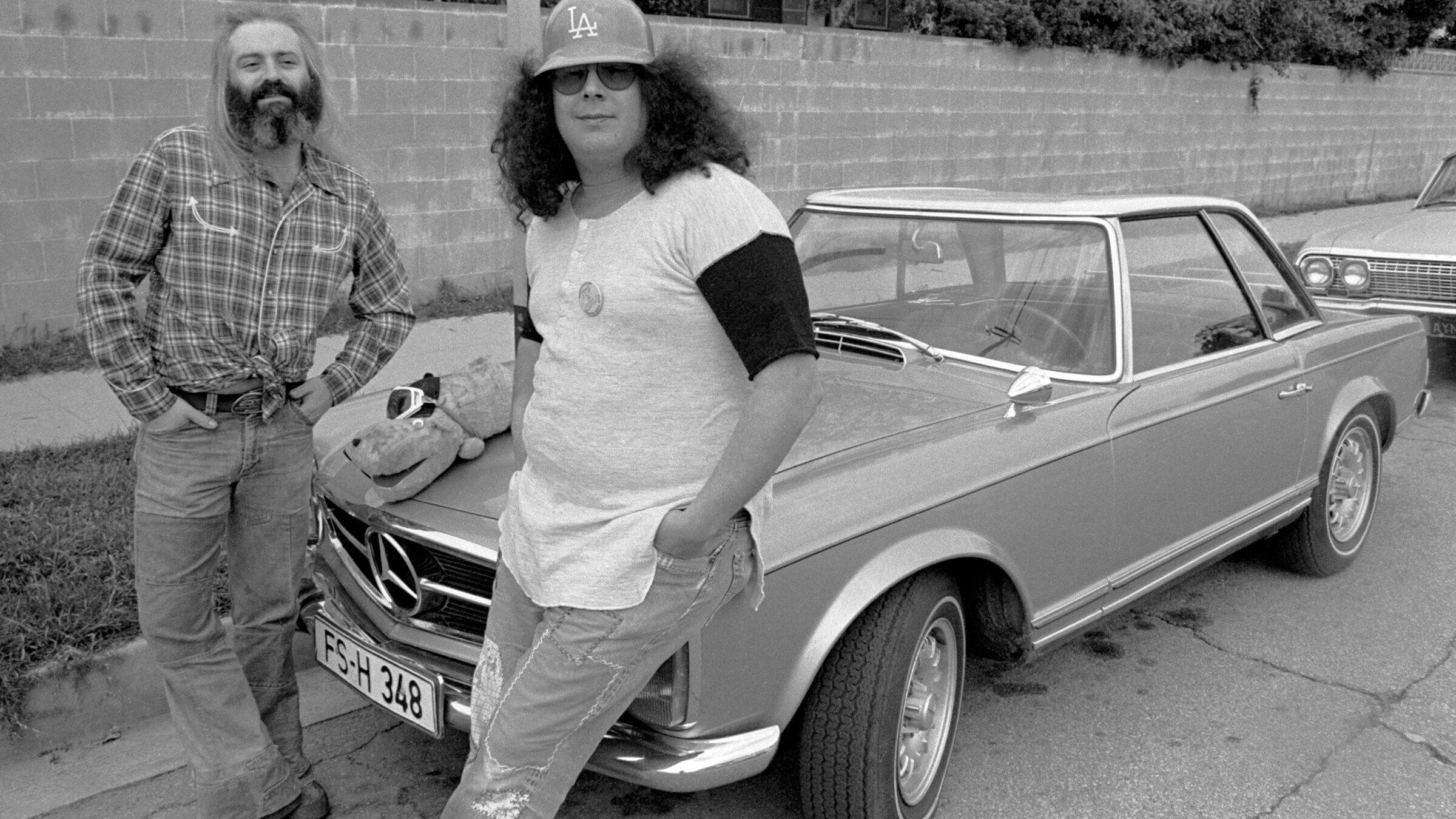
Singers Howard Kaylan “Eddie” (L) and Mark Volman “Flo,” circa 1976. Photo by Getty Images
Against the odds, the Turtles carry on.
The group, formed by Jewish singer-guitarists Mark Volman and Howard Kaylan in 1965, began helming a multi-band tour comprising ‘60s rock groups in 1984. It kicked up again in 2010 and has continued under the banner of the Happy Together Tour — “Happy Together” being the Turtles No. 1 hit from 1967.
This year’s 38-date tour — the Turtles alongside The Cowsills, Jay and the Americans, The Association, Joey Molland’s Badfinger and the Vogues — begins June 1 in Biloxi, Mississippi and runs through Sept. 2 in Puyallup, Washington.
But the Turtles now are not what they were then.
Kaylan was forced to drop out in 2017 due to heart issues and back problems. He was replaced by singer Ron Dante, best known as the voice behind the Archies’ “Sugar, Sugar.” And last year, Volman revealed that he had Lewy Body Dementia, the same debilitating disease Robin Williams had and Ted Turner has. Volman, who was diagnosed in 2020, revealed his condition to People magazine less than a year ago. (LBD leads to a decline in thinking, reasoning and independent function and may include changes in attention and alertness and recurrent visual hallucinations.)
“How are you feeling?” I asked Volman recently when he spoke to me over the phone from his Nashville home.
“Oh, I’m dealing with it,” he said. “It was a little frightful at the beginning, but I’m doing fine.”
Does it affect your performance?
“I don’t know if I’m the right one to ask but I don’t believe so. In fact, we’ve now done three years of tours with it, so it’s been a learning experience. But it’s been fine.”
The musicians that back all the singers have been with the tour from the beginning, Volman said, as has guitarist-musical director Godfrey Townsend who has previously played with Cream’s Jack Bruce, The Who’s John Entwistle and Eric Carmen, among them. “He takes the show and makes it all come out on stage,” Volman said.
I last spoke to Volman, who underwent successful throat cancer surgery eight years ago, in 2018. He explained his partner Kaylan’s absence this way: “He’s taking time off for some health issues. Right now, our main emphasis is just hoping we can get Howard back, mentally, physically, everything. It’s been a tough few years. The doctors wouldn’t let him [tour]. They didn’t want him to fly, they didn’t want him to take buses.”
Though Kaylan, 76, is not part of the tour, it has his blessing, Volman says. As to whether Kaylan is off the touring circuit forever, Volman, who just turned 77, says, “Uh, I don’t say anything is permanent with Howard. Ron [Dante] has been with us about five or six years now. The audience was mostly surprised when he joined the show and he does a really excellent job. He has definitely a modern approach, yet we try to keep it close to exactly what we would do with Howard.”
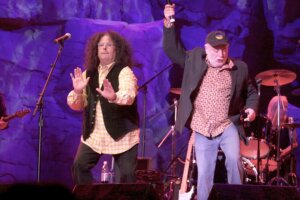
Volman likens the show to a Broadway show that uses a stand-in as one of the lead performers: “The part of Howard Kaylan is being played by Ron Dante and Ron is the lead vocalist of the Turtles,” he said.
The Turtles kind of West Coast music has been described as “sunshine pop.” Optimism reigns on the tour, not just with the Turtles but with the other groups as well. “Yes, I totally agree with that,” Volman says. “It makes it fun year-to-year where the lineup changes up just enough so we’ve got a little bit of the artists we’ve had in the past and some artists that haven’t done much touring with the show.”
During the ‘60s Volman and Kaylan, performing under the name Flo & Eddie contributed to that, sang both with Frank Zappa’s Mothers of Invention and on their own as a duo, making satire part of the package. They released four albums on Reprise and Columbia during the early-mid ‘70s.
The Happy Together bill falls on the breezier, poppier side of the spectrum, focusing on 1967, the year “Happy Together” topped the charts, “She’d Rather Be with Me’ went to No. 3 and “You Know What I Mean” hit No. 12.
Is the Happy Together tour, in effect, a human jukebox? I asked,
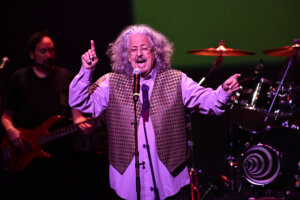
“That’s a really good way to put it,” Volman said, when we talked six years ago. “It works so well because the audience knows that when you come to the show our emphasis is on hit records, not B-sides and collectibles. This tour is all known, well-played hit songs. Everybody does their best to adhere to that and it’s been a successful philosophy.”
It is, certainly, unabashed nostalgia.
“You start to realize as time goes along, you’re able to stand back and see how fortunate we’ve been to live this one thing we wanted to do – to be on stage and sing,” he said. “And the fact that we’re still able to do it, it’s really kind of eerie. If you’d told us [back in the ‘60s] we were going to be in our 70s doing this show, I think we would have had you put in a hospital. Who knew then that the generation of our songs was going to live on through this tour? We get to sit back and put this show on, knowing these people are going to hear the best 35-to-40 songs we have to bring.”
In terms of Jewish cultural impact on their music or the show, Volman doesn’t answer directly about himself and Kaylan, but says, “The history of the Jewish audience and the pop music of the early-mid ‘60s fits into [the framework].” He figures Jay and the Americans — whose four original members were all Jewish – “hold that part of that show, and bring in the New York scene that comes with it.”
And, as to the Flo & Eddie effect — the duo had songs that zinged the players in the industry they were part of — Volman avers, “Well, the music the Turtles made, it was characteristically, definitely, had a tongue-in- cheek attitude and that doesn’t change.”

I hope you appreciated this article. Before you go, I’d like to ask you to please support the Forward’s award-winning, nonprofit journalism during this critical time.
Now more than ever, American Jews need independent news they can trust, with reporting driven by truth, not ideology. We serve you, not any ideological agenda.
At a time when other newsrooms are closing or cutting back, the Forward has removed its paywall and invested additional resources to report on the ground from Israel and around the U.S. on the impact of the war, rising antisemitism and the protests on college campuses.
Readers like you make it all possible. Support our work by becoming a Forward Member and connect with our journalism and your community.
Make a gift of any size and become a Forward member today. You’ll support our mission to tell the American Jewish story fully and fairly.
— Rachel Fishman Feddersen, Publisher and CEO
Join our mission to tell the Jewish story fully and fairly.



